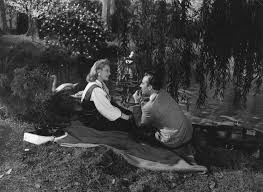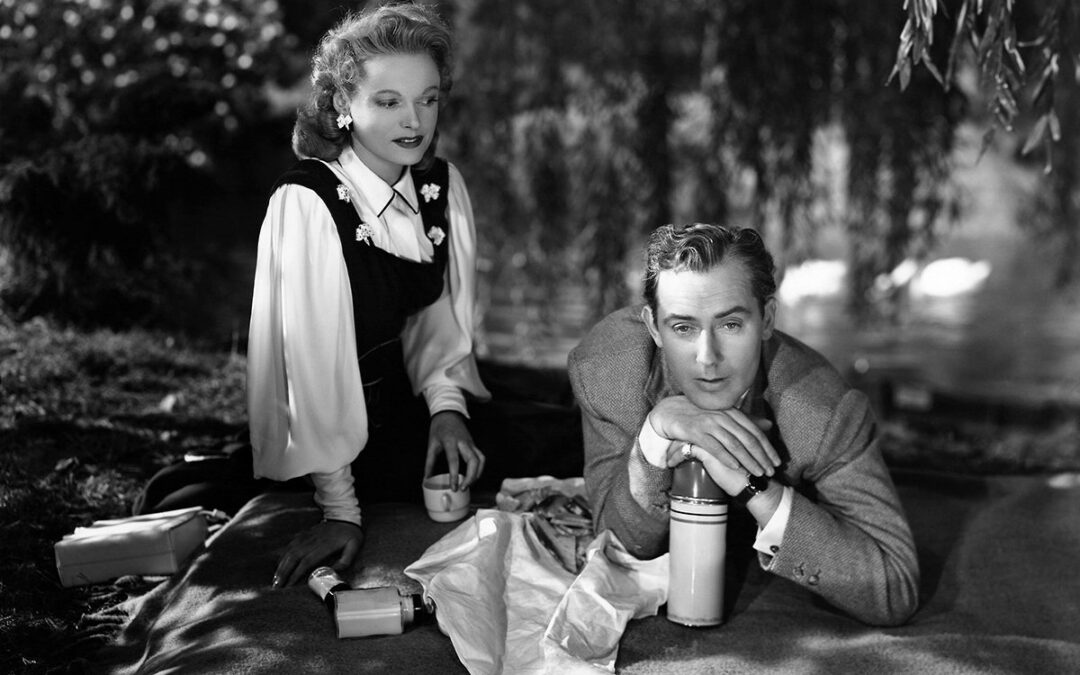A picnic in the park is a perfect situation for accommodating a would-be lover. Suspicious that her footman Richard is not what he pretends to be, Judy allows him to picnic with him on the Serpentine in Hyde Park. 
The conversation is rapid-fire and full of innuendo and poetry lines out of context to prove their sophistication. It’s amusing if you know Rupert Brooke’s “The Old Vicarage” and the lines “Stands the Church clock ten to three?/ And is there honey still for tea?” Finally, Judy asks, “Are you a footman?” But Richard puts her off. Pressing further, “I suppose you wouldn’t like to tell me who you are?” Richard puts her off again.
Jolly good fun, eh?
Now in oblivion, Wilcox’s Spring in Park Lane, the glib romance Spring in Park Lane, was the top-grossing film for 1948 and once rated among the most popular films trailing Gone With the Wind and The Sound of Music.
Featured Image: Michael Wilding as Richard and Anna Neagle as Judy
See Herbert Wilcox. Spring in Park Lane (1948). The screenplay by Nicholas Phipps is very loosely based on Alice Duer Miller’s Come out of the Kitchen. But more like Gregory La Cava’s My Man Godfrey with a picnic.

